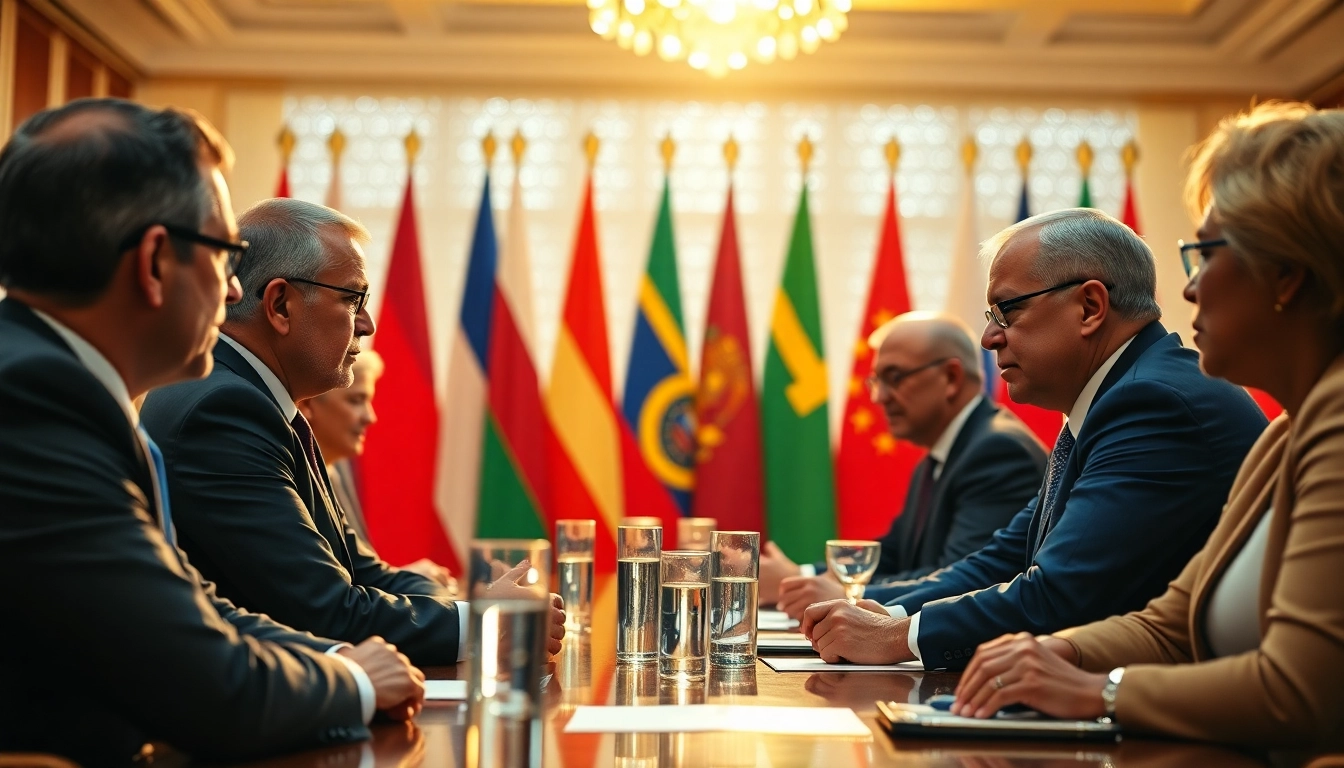Understanding Coopération Russie Afrique
The diplomatic relations between Russia and Africa have significantly evolved over the past few decades. As nations across Africa continue to carve out a sustainable path towards independence and empowerment, the focus on coopération Russie Afrique has never been more pertinent. This article delves into the historical context, current trends, key areas of collaboration, challenges, and future prospects of this important geopolitical relationship.
The Historical Context of Russia-Africa Relations
Russia’s involvement in Africa dates back to the Cold War period when the Soviet Union sought to foster relationships with newly independent African nations as a counterbalance to Western influence. This was part of a broader strategy that included military and economic assistance, particularly to socialist regimes. The end of the Cold War saw a decline in these relationships; however, since the early 2000s, Russia has strategically re-engaged with Africa. This rekindling is motivated by economic interests, a desire to expand political influence, and a commitment to counter Western hegemony.
Current Trends in Diplomatic Engagements
In recent years, the Russian government has intensified diplomatic activities across the continent. High-level visits, trade missions, and involvement in multilateral institutions such as the African Union are indicative of Moscow’s renewed interest. Notably, the Russia-Africa Summit held in Sochi in 2019 showcased Russia’s commitment to enhancing cooperation in various fields, such as security, trade, and investment.
Key Areas of Collaboration
Cooperation between Russia and African nations ranges across multiple sectors, including defense, energy, mining, and agriculture. Russia has been increasingly supplying arms and military training to countries like Algeria and Nigeria while also expanding in the energy sector by investing in oil and gas projects in countries such as Angola and Egypt. Furthermore, the establishment of a network of partnerships with African nations reflects a strategic interest in securing energy resources and developing infrastructure capable of supporting local economies.
Economic Partnerships and Opportunities
Trade Agreements and Impacts
Trade agreements between Russia and African countries are strategically vital for both parties. The increase in trade volume highlights a mutual economic benefit; for instance, trade between Russia and Africa reached approximately $20 billion by 2020. Key sectors include energy, mining, and consumer goods. As the African Continental Free Trade Area (AfCFTA) continues to evolve, opportunities for Russian companies to penetrate African markets will likely expand, offering lucrative prospects for both parties.
Investment in Infrastructure Projects
Infrastructure development is crucial for Africa’s growth trajectory. Russia has recognized this need and has begun investing in significant infrastructure projects across multiple countries. For example, Russian companies have undertaken transportation and logistics projects in Ethiopia, enhancing access to markets. Such investments not only stimulate local economies but also forge deeper ties between Russia and African nations, positioning Russia as a partner in Africa’s infrastructural renaissance.
Resource Management and Energy Cooperation
Energy cooperation, particularly in oil and gas exploration, is a cornerstone of Russia-Africa relations. Russia has invested substantially in energy projects across Africa, leveraging its expertise to help develop local resources. For instance, Russian firms are actively engaged in oil fields in North Africa and are exploring partnerships in renewable energy sectors, including solar and wind energy initiatives. These ventures are particularly essential as Africa aims to harness its energy resources sustainably.
Political Dynamics and Influence
Geopolitical Implications of Russian Presence in Africa
The increasing presence of Russia in Africa has significant geopolitical implications. As the United States and European nations grapple with their own foreign policy challenges, the Russian approach has often been characterized by non-interference and a focus on mutual respect for sovereignty. This stance is appealing to many African nations historically suspicious of Western intentions, allowing Russia to position itself as a credible partner.
Regional Stability and Security Partnerships
Security cooperation is another vital aspect of Russian engagement with Africa. With rising threats from terrorism and political instability across many African nations, Russia’s offers of military assistance and training resonate with governments seeking to bolster their defense capacities. Notably, the deployment of Russian private military contractors in conflict zones such as the Central African Republic (CAR) underscores Russia’s commitment to providing security solutions tailored to local contexts.
Russia’s Position in African Multilateral Organizations
Russia’s active participation in African multilateral organizations, including the African Union, demonstrates its commitment to engaging with the continent on equal footing. By fostering partnerships that promote economic development and regional stability, Russia seeks to enhance its soft power across Africa and contribute meaningfully to discussions around security, trade, and investment. Additionally, this involvement reflects a strategy to counterbalance Western influence in the region.
Challenges Facing Coopération Russie Afrique
Cultural and Economic Barriers
Despite burgeoning relations, cultural and economic barriers remain significant challenges. The language barrier, different business practices, and varying regulatory frameworks can hinder smooth interactions between Russian businesses and African partners. Addressing these issues requires comprehensive engagement strategies that prioritize mutual understanding and collaboration.
Historical Skepticism and Trust Issues
Historical mistrust due to past interventions and exploitative practices by foreign powers can pose challenges to establishing long-term sustainable partnerships. African nations often remain cautious about foreign involvement in their economies, particularly in resource management. Building trust necessitates transparency, mutual respect, and long-term commitments from Russian partners towards sustainable development.
Global Competition for Influence
The competition among major powers for influence in Africa has intensified, with China, the EU, and the United States all seeking to expand their foothold. This geopolitical rivalry creates a challenging environment for Russia as it navigates its relationships with various African nations. To stand out, Russia must effectively align its strategic goals with the developmental aspirations of African countries while avoiding the pitfalls of traditional neocolonial approaches.
Future Prospects and Strategic Outlook
Potential Growth Areas
As global dynamics continue to shift, several potential growth areas exist for Russian-African cooperation. These include strengthening collaborations in technology transfer, education, and healthcare. By emphasizing sectors that directly improve the quality of life for Africans, Russia can enhance its image as a partner invested in the continent’s long-term prosperity.
Adapting to Changing Global Landscapes
In an era marked by fluctuating alliances and trade relations, adaptability is crucial for maintaining effective partnerships. Russia must continually assess and adapt its strategies to fit the evolving political and economic contexts of African countries. This flexibility will enable Russia to harness opportunities presented by new trade agreements and regional initiatives, such as the AfCFTA.
Building Sustainable Partnerships
Ultimately, the success of cooperation between Russia and Africa hinges on the establishment of sustainable partnerships. This requires Russia to engage in honest dialogues, prioritize local interests, and contribute to long-term developmental goals. By promoting a narrative centered around mutual benefit and solidarity, Russia can position itself as a reliable ally in Africa’s quest for growth and stability.



